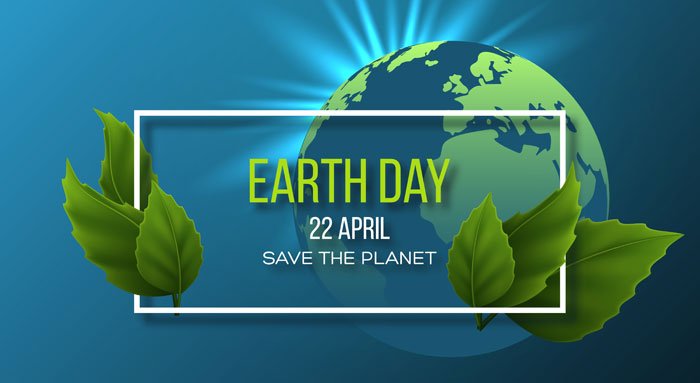
How Algae Benefits Our Water, Our Land, and You!
, by Catharine Arnston, 9 min reading time

, by Catharine Arnston, 9 min reading time
Algae is not only good for your body but it is also good for our precious planet. This superfood is an eco-friendly and sustainable crop with significant environmental benefits, so you can love your body and help the Earth all in one!
On April 22nd, we will celebrate Earth Day worldwide to demonstrate support for environmental protection and sustainability. First celebrated in 1970, Earth Day is now celebrated in more than 193 countries and has become the world’s most significant ecological movement. Who doesn’t love supporting the protection of our wonderful planet?
But when April rolls around, it’s often hard to know how you can do your part. Well, guess what? Algae is the answer!
Algae is not only good for your body but it is also good for our precious planet. This superfood is an eco-friendly and sustainable crop with significant environmental benefits, so you can love your body and help the Earth all in one! Let’s see how growing and consuming more algae can help protect the oceans and land that make up Mother Earth.

The theme of this year’s Earth Day is “Protect Our Species,” so what better way to start off than by discussing the important fish species in our oceans? Overfishing is threatening our oceans’ ecosystems and depleting fish populations.
We are now using fish not only as a food source but also as a source of omega-3 fatty acids through fish oil supplements. The fish oil craze has exploded because of fish oil’s high concentration of omega-3s, which are known for their ability to contribute to skin and hair health and help fight heart disease, Alzheimer’s, and depression.
However, fish are being depleted faster than they can reproduce, and scientists believe that by 2050, fisheries will collapse if current practices continue. We clearly need an alternative source of omega-3s.
Well, the solution is not a difficult one! Algae, the original plant superfood, is a sustainable source of omega-3s and can help save our oceans from overfishing. In fact, marine microorganisms (microalgae) are the original source of omega-3s. The reason that we use fish oil for a source of omega-3s is that fish consume these microalgae.

Furthermore, the omega-3s within microalgae is similarly transferred to other plants and animals. It makes up omega-3s sources in everything else we consume.<1> Considering that the omega-3s within our diet is coming from algae anyways, shouldn’t we just cut out the middle man and directly consume algae? We would be getting more out of our omega-3s source and protecting our fish and oceans. Sounds like a brilliant idea to us.
Additionally, algae
We might be stating the obvious, but overfishing is a big problem. Every living organism in our oceans contributes to an element of the ecosystem and taking just one species of fish out of the sea for good could cause a snowball effect of food chain destruction, contributing to our numerous environmental issues.
Algae
Algae as a crop is becoming increasingly attractive to conservationists. They love it because it requires less water, and also because they can reuse the water. Algae has microorganisms that kill bacteria in the water in which it is growing, making it useful beyond its growth.
In a world where conservation is paramount, more water-efficient food sources are essential. Conserving water is important because doing so will decrease the energy required to deliver water to homes and irrigation systems, in turn, reducing pollution from those energy sources.
Algae as a crop
Algae uses less than one-tenth as much land as traditional crops, and grows ten-times more rapidly, freeing up the land for alternative use.
More specifically, spirulina provides 200-times more protein per acre than beef. While just one kilogram of beef protein causes 145 kilograms of topsoil loss, growing spirulina does not deplete any topsoil whatsoever. In fact, spirulina can even help improve topsoil by acting as a natural fertilizer.<4>
Algae
Researchers estimate that by 2050, we will have 9.5 to 10 billion people in the world, making protein sources scarce.
More algae farming might not be as far off as you think! The very first Algae Agricultural Act was approved by the President in January 2019 as part of the 2019 Farm Bill to encourage US farmers to grow algae in the USA. This bill, which authorizes assistance for activities related to algae production, was supported by the House Agriculture and House Energy and Commerce committees in 2018 and is a landmark piece of legislation that will finally bring algae into the mainstream.<5>
Just days after its introduction, Congress announced legislation to direct millions into algae research and commercial development.<6> While more action is needed if algae

Did you know that marine plants, such as microalgae, produce about 70-80% of the oxygen on Earth?<7> That means you have algae to thank for four out of every five breaths. There’s yet another thing to add to the list of things algae has given you. In fact, algae


